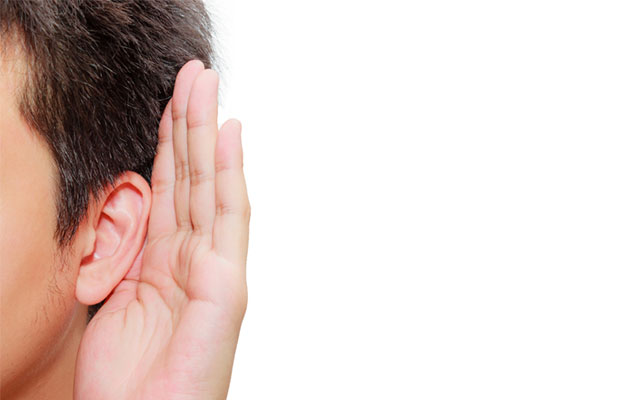I’ve been wrestling with a cold virus for much of the past week, which has rendered my already faulty hearing a bit less effective than usual. My listening, however, seems to have improved.
For years, I’ve been mostly ignoring all well-intentioned advice about my hearing loss. Oh, I’ll visit my doctor every few months and get my ears cleaned out — a process that temporarily sharpens my auditory capabilities — but I haven’t been willing to admit that the problem may be more serious than a surplus of earwax.
That’s partly because I’m a guy, and guys tend to downplay the severity of injuries, illnesses, and the value of reading the instructions before assembling stuff from Ikea. But it’s also a function of my general disdain for doctors and their opinions, well-informed or otherwise. I’ve lived for more than 64 years inside this body, and I’ve always been pretty confident of its ability to heal itself.
It’s not that I can’t hear anything, after all. If I’m sitting across the table from My Lovely Wife, for instance, I don’t miss a thing if I happen to be paying attention. In other situations it’s a little more hit and miss. This hasn’t bothered me too much, really, until recently. Just one of the costs of aging.
But I stumbled upon a piece in the NY Times the other day that has nudged me firmly in the direction of regaining my hearing, one way or another. The story, by longtime NYT health columnist Jane Brody, highlights the various health consequences of hearing loss (cognitive decline, dementia, stress, fatigue, confusion, social alienation, etc.) and argues for the salutary effects of hearing aids.
I’ve been aware of the health risks for some time, so Brody’s litany of consequences didn’t move me as much as a couple of quotes from one of her sources, Mark Hammond. Hammond left part of his hearing on the battlefield while serving in the Israeli army — too much close-range machine-gun fire. It took him 30 years to seek help in the form of a hearing aid. The impact on his life, he tells Brody, was life changing.
“It was very joyful, but also very sad, when I contemplated how much I had missed all those years,” he said. “People with hearing loss often don’t realize what they’re missing. So much of what makes us human is social contact, interaction with other human beings. When that’s cut off, it comes at a very high cost.”
Hammond’s story sounded way too familiar to ignore. “I could hear well enough sitting face to face with someone in a quiet room, but in public, with background noise, I knew people were talking, but I had no idea what they were saying. I just stood there nodding my head and smiling.”
Been there, done that.
I was discussing this in a quiet room with MLW the other day, testing out the idea that maybe I would go see someone who knows more than I do about ears. Maybe even look into getting a hearing aid. She seemed pleased, not only (I suspect) because she maybe wouldn’t have to repeat herself so often, but also because she knows that I’m missing stuff. “When I can hear the chickadees outside our bedroom window, and I know you can’t,” she said. “It makes me sad.”
There’s a sense of irony here that does not completely escape me. For the past 20 years or so, I’ve devoted a good deal of time and energy to a Buddhist meditation practice designed to help me become more present in each moment. And yet I’ve somehow been okay with gradually losing my awareness of the sounds around me.
That doesn’t really add up, so last week I finally dialed up a hearing clinic my doctor had referred me to way back in March. And early next month I’ll go in for a hearing test and consultation. I might even listen to their advice.


This Post Has 0 Comments